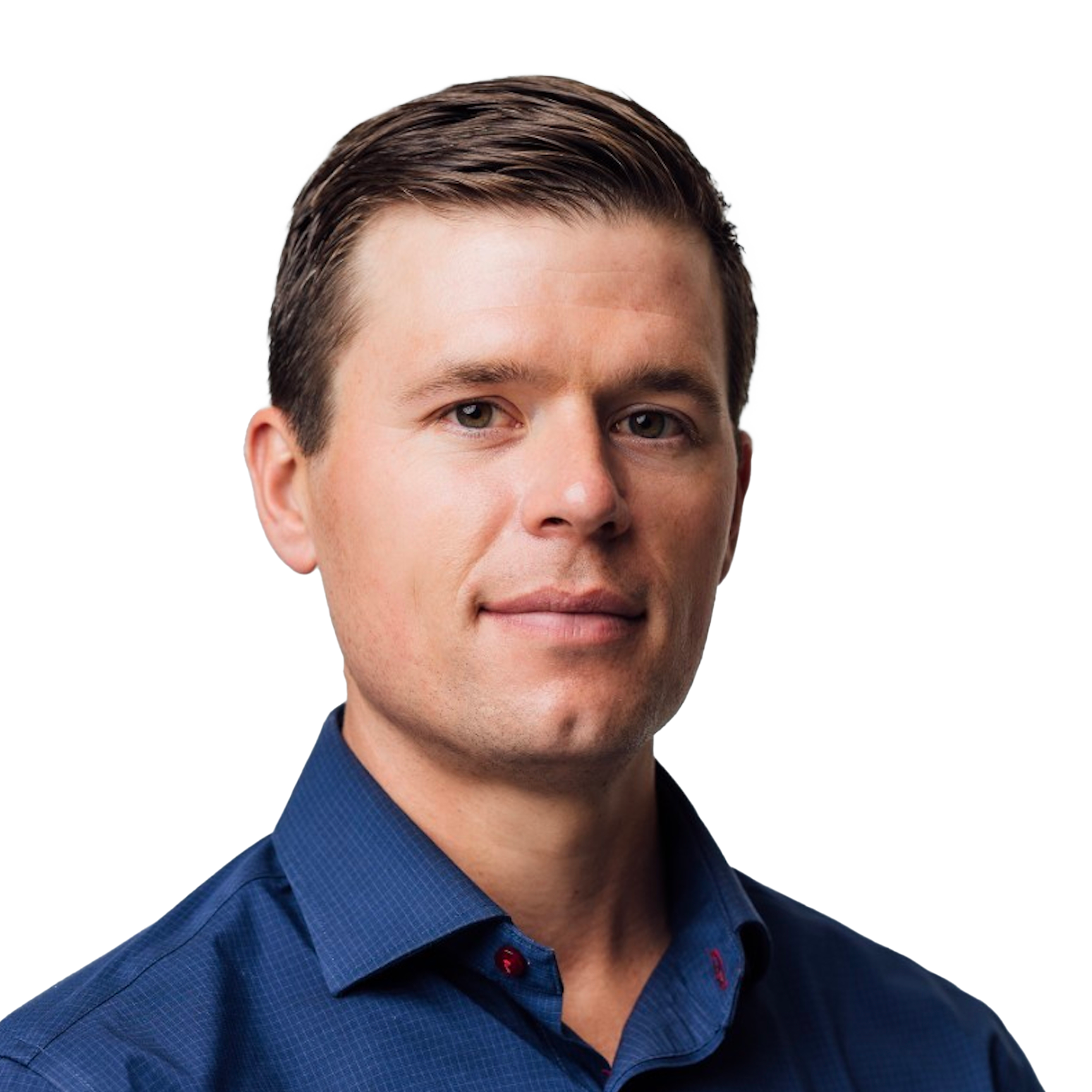

In this episode of Path to Growth, Tracy sits down with Felicia Curcuru, co-founder and CEO of Binti. Felicia shares her journey from growing up in New Jersey as the youngest of three sisters to building a mission-driven tech company focused on transforming the foster care and adoption system in the U.S. Inspired by her sister’s difficult adoption experience, Felicia talks about the early struggles of finding product-market fit, the critical importance of deeply understanding user needs, and how her approach shifted after shadowing social workers for months.
She also offers practical advice on selling to government agencies, including how to build momentum through local adoption and leverage conferences and word-of-mouth. Felicia reflects on her fundraising strategies, emphasizing timing, process discipline, and emotional resilience. The conversation covers her leadership philosophy, values-based hiring, the role of coaching and feedback in personal growth, and the importance of building a transparent and solutions-oriented company culture. This episode is packed with actionable insights for founders and leaders navigating complex problems and systems.
Podcast Transcript
[00:00:44] Tracy Young: Hi, welcome to Path to Growth.
[00:00:46] I'm Tracy Young, co-founder and CEO of TigerEye. Today we are joined by Felicia Curcuru. Co-founder and CEO of Binti. Alicia, welcome. Thanks for having me. So tell me a bit about growing up. Where were you raised? Tell me about your mom and dad, what you learned from them.
[00:01:05] Felicia Curucu: I grew up in New Jersey. I'm the youngest of three daughters and I had a really loving family.
[00:01:11] I'm super grateful and a huge part of my life growing up was tennis. Both of my sisters played D one tennis and. They are 15 and 16 years older than me, so I grew up just like watching them and wanting to be like them. And I played nationally competitive tennis growing up, so that was a huge part of my life.
[00:01:29] It was having three moms because my pa, my sisters were so much older than me, so I was always wanting to have adult conversations when I was little.
[00:01:39] Tracy Young: That's so interesting. You're the youngest of three girls, but because of the age difference, you're really the oldest one. There's all this research on birth order and when there's like a seven year gap in between the kids, that younger one actually ends up being like a, the first child again, almost.
[00:01:58] Felicia Curucu: Yeah. Yeah, there was definitely an element of kind of being the only child as well. Do you still play tennis today? I do. And actually my boyfriend plays as well, so it's pretty nice. And my parents still play and they actually just Oh, amazing. Yeah, they just moved near me in the Bay area, so I'm playing with them, which is pretty cute.
[00:02:17] Tracy Young: So tell me about TI and why this problem was important to you.
[00:02:20] Felicia Curucu: So my sister adopted two children and it was a really difficult, complicated, stressful process. And because I'm so much younger I was high school going into college when it happened. And I didn't know anyone who had gone through the process and she almost dropped out a number of times because it was so stressful.
[00:02:39] And then I ended up doing research into it and I learned that there's about 400,000 children in foster care in the us. And the outcomes for them are really sad. So 50% will be homeless at some point in their life. 50% will have experience with the criminal justice system by the time they're 17. The majority of sexually trafficked youth in the US are current or from, or foster youth.
[00:03:02] And there's a lot of other statistics that show that children growing up in child welfare don't have a fair chance at life. And it just didn't make sense to me why it would be so hard to become a foster or adoptive family when these are the outcomes for children without families. So that prompted me to.
[00:03:16] Wanna get involved and that's why I started ti.
[00:03:19] Tracy Young: Yeah. And binti software helps government agencies streamline the foster and adoption and application process for families that are applying and helps social workers in these cases stay organized so that more children can have permanent families. TI also has newer products that help social workers match families with children, find relatives who can take care of them because in a lot of the cases the relatives don't know and it's crazy.
[00:03:43] And then they're just thrown into. Foster care system when there's family members who want to take care of. So I was so happy to read about the newer products that help with this.
[00:03:53] Felicia Curucu: Thank you. Yeah, I really appreciate it. Yeah, I think when I first got into it, I thought I'd start as a consumer company helping families like my sister adopt.
[00:04:00] I realized government controlled the whole process, so to really help, I'd have to partner with government. And then I spent four months shadowing San Francisco County's team, and I learned that even though I got into this role due to adoption. That's really not the first goal. To your point, the first goal is a family struggling.
[00:04:16] Can you give them services to help them stay together? That's called prevention. Or if you have to separate the family temporarily and put the child in foster care, can you give them services to reunify? If that's not possible, can the child join a relative or friend of the family? If that's not possible, adoption.
[00:04:30] And then if that's not possible, the child ages out without a family at 18 or 21, which is really the last resort. So yeah we are going more and more to the root of the problem over time, which is exciting.
[00:04:42] Tracy Young: You spoke candidly in the past to first round about your journey to get product market fit and the importance of experimenting with problem solution fit.
[00:04:51] Can you tell us more about that and the core takeaways for our listeners?
[00:04:55] Felicia Curucu: Yeah, definitely. I think when I first started ti. I had ideas for solutions. I was like, okay, I wanna work with families to help them adopt and this is how I'm gonna do it. And I just tried to force my solution onto the market and it didn't work.
[00:05:12] And frankly, it was a really painful first few years. And then I think I got more humble and I realized I needed to listen a lot more. And that's when I went and I spent four months just shadowing social workers and understanding. What are the challenges to approving more families? And then as we move to other teams what are the challenges for those teams?
[00:05:33] And that's when things really started to click and make sense in terms of what we could build to really solve the problems that existed. So I guess the main takeaway is don't think that you have all the answers. Be really careful of assumptions that you're making and just listen and shadow users as much as possible and understand their workflow.
[00:05:52] And then. Do first principles thinking in terms of understanding the problems and coming up with solutions to those problems as opposed to forcing solutions onto people that don't make sense.
[00:06:02] Tracy Young: Yeah, I've certainly made that mistake many times and I actually find that. The best conversations and when we can be very honest with our prospects and customers about wait, is this problem bad enough that you're gonna pay money for it?
[00:06:17] What are you actually gonna create budget for? Or part like, redirect budget for this problem? And getting an honest answer there is just so powerful for the pre-product market phases.
[00:06:30] Felicia Curucu: Definitely still,
[00:06:31] Tracy Young: I guess. You sell to government agencies. This is really hard having two companies that is trying to sell to government as well as one of our verticals.
[00:06:42] What's your advice here for startups and founders wanting to talk to folks in these agencies?
[00:06:51] Felicia Curucu: It's a good question. So I think from the outside, it seems like selling to governments really slow and bureaucratic. There is an element. That is slow and bureaucratic of, so the government, but I think the benefit is once, once you are in it is very sticky and the way, the ways that we've managed to sell into government, first of all, we started at the county level.
[00:07:13] We now sell to entire states as well. But I think selling to counties can be easier. In some verticals. You can sell to cities. We, child welfare isn't done at the city level, but selling to the more local agency can be faster than selling to a whole state. There are certain procurement thresholds under which they don't have to do an RFP, if your product kind of comes in at that, it can be faster to move forward. I think governments care a lot about, they often don't wanna be the first one, but they also don't wanna be the last one. So if you're able to find an early adopter city county that there's just someone who's really tech forward in leadership there that is frustrated with the currency of things and wants to try things.
[00:07:54] If you get them on board and have a good case study, then it's a lot easier to get a lot of other. Folks on board and they wanna have innovation as well, but not necessarily be the first to take the risk. So I think for each of our new products, it's getting that first one to try it, and then it's a lot easier getting other ones.
[00:08:11] And then I think that agencies talk to each other within government, especially within a state. Once we got one county in California, we actually got 21 counties within the first year because they talked to each other. We guessed for referrals. We went to events. Where they all go to and things like that.
[00:08:31] So yeah, I can share more, but those are some initial ideas of how we got started in selling the government.
[00:08:36] Tracy Young: Any other marketing strategies that were effective? I've heard case studies and like marketing events.
[00:08:43] Felicia Curucu: Yeah, definitely. Conferences are really big for us. So there's a lot of conferences in our space and I think in each government vertical and government folks tend to go to conferences and learn from each other we go to a bunch of conferences. We'll have a booth, we'll have our swag, we'll have we'll try to speak on panels with our customers about the impacts that they're seeing. And then we also do government affairs at the state level, and that can help set up meetings with certain key stakeholders as well.
[00:09:11] Tracy Young: It's so nice to hear your perspective. I remember getting to talk to, or I was at a talk where one of the ER founders was there and one of the executives, and the question was like, how do we sell the government? And then the answer was, don't sell the government unless you're willing to hire lobbyists and talk to generals.
[00:09:27] And I remember filing that away, but that's a much different type of software. Let's see. So you've raised about 60 million total in funding. Can you share your advice for other founders when it comes to fundraising?
[00:09:44] Felicia Curucu: Let's see. There's so much there. I know a lot of this, but let's see.
[00:09:49] I think that running a good process, I think is really important. So I'm a big proponent of. Doing a round in the weeks leading up to a fundraise with other founders and getting their advice, doing pitch practice getting them to commit to sending your blurb to their investors, and then really just lining up a lot of meetings back to back.
[00:10:11] And that helps you like build momentum and have a sense of urgency for the round and get it done quickly. So every round I've done from seed series A, series B has all been done in a month or less. I think it's because I've like just really lined up things back to back and then it can move forward quickly.
[00:10:28] I think it's also important to raise at a good time for yourself in the market. I've tried to be roughly cashflow positive when I go out to raise each time so that I'm in a position of. I want to raise, but I don't need to raise. And obviously time it where you've just had a good period of growth.
[00:10:48] Ideally the market is good so I think if you time all of those things together and run a good process it can go well. You wanna be careful not to I think one thing I'm proud of is early on in those first few years when we were pivoting around I had raised $2 million seed round, spent a million of, it was not a product market fit yet, and a team of six people.
[00:11:10] I made the really hard decision of letting go of the team because we were gonna run out of money before we found product market fit. And you don't wanna go fundraise when you're in a bad period. You know when your metrics aren't looking good. So I managed to reduce our burn, find product, market fit, show growth, and then go out to fundraise.
[00:11:29] So those are some initial thoughts.
[00:11:32] Tracy Young: It's really unheard of to do so many rounds in less than a month. So you really put in a lot of thought and just really made sure timing was right for you. And I think that's really good advice for other founders.
[00:11:49] Felicia Curucu: One other thing is I really try to practice the messaging 'cause you get so much sharper after doing a few pitches.
[00:11:54] So practicing the messaging on founders and then. Maybe even talking to a few angels before you get to like funds so that by the time you get to the funds you're super sharp.
[00:12:02] Tracy Young: Because I think that time kills all deals. You get you hear about founders who've been on the road for eight months trying to fundraise and they just can't close.
[00:12:11] Or it doesn't even matter if the company's doing well. If any VC gets wind that, wait, all these other bcs have been saying no for eight months. Like, why would I want this totally unattractive deal? There's something mental there.
[00:12:24] Felicia Curucu: A hundred percent. Yeah. It's a weird dynamic and so that's why it's I try to line up like 40 plus meetings in two weeks and just it's really intense and Yeah, frankly, every time after a fundraise even though all my fundraisers have gone and quickly on paper, it's there's always rejection.
[00:12:43] There's no fundraise without a good amount of rejection. So that's hard. And then there's always. Another founder told me there's always a good gut punch in every fundraiser where just something happens where that really throws you off. So after every round, I've always needed like a good amount of ation, frankly, some therapy sometimes to get through to the next phase.
[00:13:05] Tracy Young: I do think that's a really important point. You lined up 40 meetings in two weeks, which is really hard to do first of all. But if you do enough prep, it is possible and. The other key is to cast the net wide, you only need maybe one or two investors to say yes. So you could get literally 37, 38, 39 nos. And it's totally okay as long as someone outta the crew says yes.
[00:13:34] I think these are excellent Advice for founders.
[00:13:37] Felicia Curucu: One thing I tell founders too is you'd rather get eight no's and two yeses then have 10 maybes laying around. And I think investors really wanna stay in the maybe category of oh, tell me more. And you just really wanna, I think that's why compressing it is so important because you're like, this round is moving really fast.
[00:13:55] I'm talking to so many people. You have to gimme an answer pretty quickly and you push people to either direction quickly. Yeah.
[00:14:01] Tracy Young: I think that's important in any sales conversation as well for prospects as well, to not waste time on the tire kickers. And then for investors, it's in their interest of the year.
[00:14:09] Friends they want. The option to be able to invest at some later time. When you are recruiting for teammates, what are you looking for?
[00:14:20] Felicia Curucu: It's a good question, and I think it's evolved over time. But one thing is, one thing I'm proud of is, I think early on at ti, we sat down when we were about eight people and we put down our values.
[00:14:33] For example, one is like em, one is empathy, one is breaking through walls. One is embracing the best idea, having a low ego about being right and et cetera. And so we have questions for each of those values and we do screen for that and we do turn people down that sort of meet the criteria of the role, but don't meet those values.
[00:14:51] So I think that's something that I'm really proud of that we've done well. I think another thing that we've added in more recently, just based on seeing who has been successful att and who hasn't, is like a problem solving exercise for every role. We find that people that can just look at a problem, approach it from first principles, come up with a creative solution, is just relevant for every role, and we'll make them dynamic and able to tackle different things that come up.
[00:15:21] So problem solving is something we care a lot about. We also want people who care about our mission, we pay well, but we don't want people who are just like, oh yeah, this was the highest salary role. Like we, we want people who really care about what we're doing. We think that'll instill more like loyalty and tenure over time and passion for the work.
[00:15:41] So those are some like generic things. And then obviously, depending on the role, we're looking for certain other things too.
[00:15:46] Tracy Young: But problem statements are really interesting. So it's like an exercise where you present them with some kind of. Terrible problem. And then you make them walk through how they're gonna solve it at ti.
[00:15:58] Felicia Curucu: Yeah. Yeah. And we have a few different versions depending on the role. We try to make it a little bit relevant, but yeah it's like there's some problem you have to come up with solutions. There is some numbers and math component of it. It's like you don't have to be a pro at calculus or something, but there's, there is an element in any role of data.
[00:16:18] Even if you're in a sales role, there's okay, we're gonna quote this customer and they want this, like we're gonna give a discount. 'cause they're paying all upfront, but then they're gonna you need to be able to navigate different challenges with numbers. So there is like a numbers element to it, and I think some people are thrown off by that, but we think it's important.
[00:16:38] Tracy Young: I like that it forces them to really communicate and lay down a very open-ended response. And you really get, have a lot of opportunity to judge them on how they think, which is really cool.
[00:16:52] Felicia Curucu: Yeah, a lot of it too, to your point, is like seeing how they navigate a problem, how they think through it and not just the final answer.
[00:16:59] Tracy Young: How do you think about building team culture? Obviously the values are non-negotiable. What behaviors do you wanna encourage and what do you wanna minimize?
[00:17:08] Felicia Curucu: Yeah, it's a good question and I think it's something I'm thinking a lot about, because during Covid we went remote. We do have an office in the bay as well, but I think it's even more challenging, I think, to promote certain things in your culture when you're not all together.
[00:17:21] So it's something I've been thinking a lot about. I think one thing I'm really focused on right now with our culture is. Encouraging people to be really solutions oriented. If there's a problem, feel empowered to be like, okay, this is a problem. I have an idea. Let's all solve it together, or let me raise it to someone who I think can solve it.
[00:17:41] As opposed to maybe feeling oh, there's this problem and it's never gonna get better. So I'm just like upset about it. So we're really trying to encourage and being solutions oriented. We're big into feedback. So we train people on giving and receiving feedback when they join t. We do it in every one-on-one and we give refresher trainings on it.
[00:18:02] So that's kind of part of that as well. It's like we want people to notice things. We don't want them to just like fester and ignore. We want them to notice, bring them up, be proactive. To solve problems.
[00:18:12] Tracy Young: That's really cool. We are really big into Enneagrams, so it's like the first thing you do when you join TigerEye, and part of it is presenting to the team what your Enneagram number is.
[00:18:23] What motivate motivates you, what inspires you, what pisses you off, but also I think the most important part of it is just like, this is how I like to receive feedback. For me, I really like, give me a compliment first to soften things, then give me the feedback and just end it with some more compliments because I'm, you're just gonna have to sugar coat it.
[00:18:43] And some people are just like, just never do it in public. If you wanna gimme feedback, do it in private. And it's, I think it's helped a lot of us work better together.
[00:18:53] Felicia Curucu: That's really cool. We haven't tried that. I'm gonna think about that. One thing we do that's like a little bit similar is we have people make a user guide when they first come to Bint about how to best work with them and part of it is communications and so they make it and then they share with their team and everyone reads
[00:19:08] Tracy Young: it's a nice way for just to get someone up to speed or the team up to speed on this new person coming in.
[00:19:13] A CEO, what are the most important responsibilities you have to your team in the company? I
[00:19:20] Felicia Curucu: think there are a few. So one is making sure we're. Moving in the right direction, like making sure we have the right vision and strategy and everyone knows about it and we're all moving in that direction.
[00:19:35] Another is like making sure we're well capitalized making sure we fundraise at the right points and use it for the right things to invest in. And another is making sure we have the right people in the right roles. I think when we were four people, I was 25% of the team and I actually could make a meaningful impact on what we did day to day.
[00:19:56] And now that we're about 90, the work I do contributes a lot less day to day in terms of me doing the actual work. So it's like making sure we have the right team and everyone knows where we're headed. So yeah, I've been spending a lot of time thinking about that first piece around communication and communicating the vision.
[00:20:12] I think I still have areas to improve in that as we scale. I think I'm still wrapping my head around yeah, how to do that at this team size. And I think when we were smaller, it was easier for us all to know what everyone was doing. And I'm trying to focus more on making sure everyone knows what's going on in the broader company.
[00:20:32] So that's a big focus for me right now.
[00:20:36] Tracy Young: Yeah. And I feel as a team gets bigger, it's just communication. Is it just, it's just different. It's easy when you're in a room with 10 people and you just yell out and everyone hears you, and as it just changes. And your communication architecture has to change too.
[00:20:51] Yeah. Trust in leaders can be made or broken when things get tough. How do you deal with a crisis?
[00:20:58] Felicia Curucu: One that comes to mind. I think a lot of founders dealt with this a few years ago when like SBB shut down and all of our money was frozen and it was unclear what would happen. I'm proud of how I navigated that.
[00:21:11] I got good feedback from it. Basically. I was really transparent and I just, I. Every day would provide a, like a pretty robust update in terms of what was happening, what we were doing, how we would navigate it. And so for example, like I was talking about how I was lining up contingency money with our investors and the fact that they were willing to they actually did give us money to meet payroll, which was coming up and I.
[00:21:36] But I was like, there's a chance it's gonna come late and our payroll will be late. And here if anybody has urgent needs, let us know and we'll actually prioritize those first because we do have some money in another account. So I was just like really transparent about what we were doing and I thought people would.
[00:21:53] Freak out more, but I, they were actually like, oh, this feels great in terms of how you're handling it and this gives me more confidence in bitty. So that was an unexpected positive in a strange way. And then obviously it worked out and we got our money back.
[00:22:07] Tracy Young: It was a crazy weekend.
[00:22:08] I remember that. Weekend's which, yeah, I completely forgot about it. But now that you're bringing it back up, I'm getting a bit shell shocked for people. Yes. I think it's so important, terrible things happen and I think it, it gave your team front seat how you handled it and they probably trust you more because of it.
[00:22:30] Felicia Curucu: Yeah. I think frankly I should learn from that and do that more in like in other situations. That was such an extreme example that I was like, okay, I have to do this. But now that we're talking about it, I'm like I should apply that to other situations that are less extreme and I think Epstein would appreciate it.
[00:22:44] So this is helpful.
[00:22:46] Tracy Young: Tell us about one person who helped you become a leader you are today.
[00:22:50] Felicia Curucu: There's a lot of people I could think about. Definitely my parents. I've had a number of important mentors in terms of later stage founders that have been great mentors to me. But I might call out my coach.
[00:23:01] I've worked with a coach, Amy Logan for a number of years, and she's just had a huge impact on who I am as a person who I am as a leader. And I think one of the most impactful things she's done is she does a 360 with me, where every year and a half or so she'll talk to. A ton of people I work at that, the company she'll talk to my partner, my family, and they just let her know everything.
[00:23:28] What, what's, what are Felicia's strengths? What are her areas for growth? What are her blind spots? And then I get this huge digest from her. And honestly, it's pretty brutal. I definitely cry most times that I get it over something. 'cause it's just a lot, right? But then we work through it and.
[00:23:48] A, it's fun to also focus on the strengths 'cause it's easy to jump to just areas for growth and figure out how do I continue to double down on these strengths and make them superpowers. And then on the areas for growth, she buckets them. And we focus on a few at a time. 'cause you can't focus on everything, but what are the top few and how do we really like focus and work on those?
[00:24:08] And she's helped me level up in a number of important areas that I think have impacted me as a leader as well as just as a like family member and friend that I'm really grateful for.
[00:24:19] Tracy Young: Three Sixty's are really powerful, especially anonymized 360, and thanks for sharing that. When you get it you end up crying every time.
[00:24:29] Felicia Curucu: Yeah. It's hard to get feedback, but it's important and I'd love it in general and I'm grateful for it, but it, no one likes hearing things that they're not good at but it is important to hear it and work on it as well. Yeah.
[00:24:45] Tracy Young: Yeah. Makes growth possible, the acknowledgement of this one thing you might wanna change.
[00:24:51] Felicia Curucu: Yeah.
[00:24:52] Tracy Young: What's I could talk to you for another hour, Felicia, but what's your parting advice for our listeners who are all very ambitious, wanting to see their career shine? What's your advice for them?
[00:25:07] Felicia Curucu: I would think of a couple things. One is try to work on something that you're really passionate about and that you love.
[00:25:13] If you're gonna start a company it's really hard. It's an emotional rollercoaster, and if you're working on something that you love and you're passionate about, it makes it a lot easier. Prior to starting Binti, I actually worked on another company for six months and it was in a space I just didn't care about.
[00:25:30] And when things got hard, I was like, why am I doing this? And then with Binti, things were really hard the first few years when we didn't have brought fit, but I was. I was like, I'm gonna figure this out. I care about solving this problem. And I think that helped me get through the hard periods. So that would be my number one like and a suggestion is I literally made a list of what are the problems I care about most in the world?
[00:25:51] And I just tried to brainstorm solutions to those. So I would suggest doing that. And then maybe back to something I mentioned earlier of just don't make assumptions, be humble and really listen to people. Just spend time listening, shadowing. Understanding people's problems and then work on a solution to the problem.
[00:26:12] Tracy Young: Thank you so much for joining us today. I really loved all the nugget of advice that you've given us.
[00:26:19] Felicia Curucu: Yeah. Thank you so much for having me. This was fun.

.png)













